facial recognition
Latest

Google confirms Pixel 4 will support face unlock, touch-free gestures
Google is once again validating rumors about the Pixel 4, this time for its touch-free control. The company has confirmed that its next flagship phones will include motion-sensing Soli radar that lets you skip tracks, silence phone calls and otherwise control key phone tasks by waving your hand. Consider it a potentially more sophisticated take on the LG G8's gestures. Moreover, Soli will play a key role in one of the Pixel 4's other signature features: secure face unlock.

United Airlines offers easier biometric clearance for frequent flyers
United Airlines is joining the likes of Delta and British Airways in using biometric security to speed up your airport visits. The airline has forged a deal with Clear that will bring speedy facial recognition and fingerprint scanning to its frequent flyers, helping them skip the usual document checks. Clear will be available in United's hubs at Newark Liberty International and Houston George Bush Intercontinental this summer, and there are "efforts" underway to make Clear lanes available at Chicago O'Hare in the moths ahead. Many passengers will get discounts on Clear as well, although the amount depends on just how devoted you are.
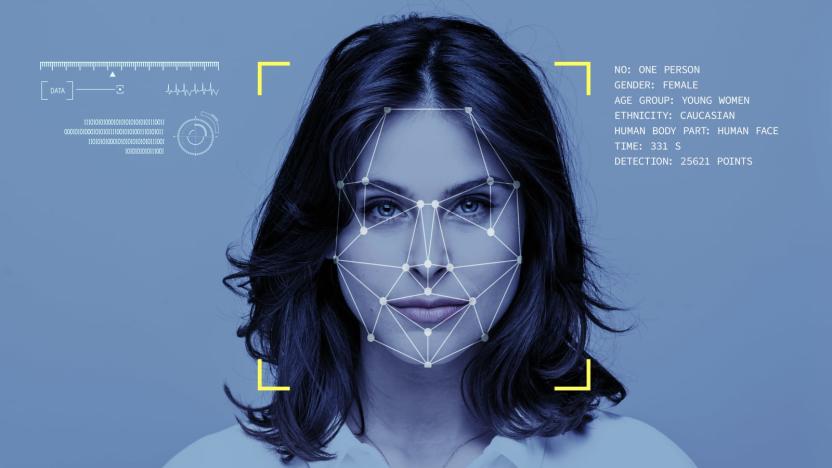
A new bill could ban facial recognition in federally-funded housing
Now that facial recognition is more common, so are the laws aiming to limit its scope. San Francisco, Oakland, Calif. and Somerville, Mass. have all passed laws prohibiting city use of facial recognition. Now, a group of Congresswomen hope to pass the first federal legislation to limit the technology. According to CNET, the No Biometric Barriers to Housing Act is expected to be introduced this week.
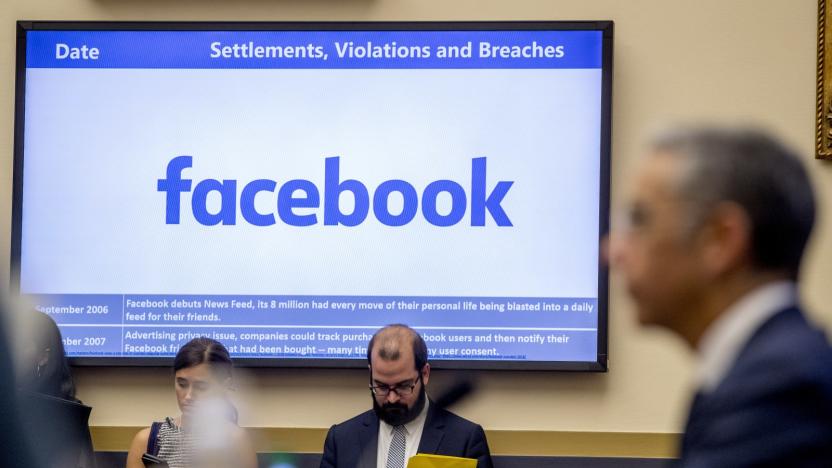
FTC to accuse Facebook of misusing phone numbers and facial recognition
The Federal Trade Commission (FTC) reportedly plans to issue a complaint over Facebook's handling of phone numbers and facial recognition. According to The Washington Post, the FTC plans to allege that advertisers managed to target users who provided their phone numbers for Facebook's two-factor authentication security feature. Sources also told The Washington Post that the FTC will accuse Facebook of providing insufficient information about the ability to turn off the facial recognition tool that offers photo tag suggestions.
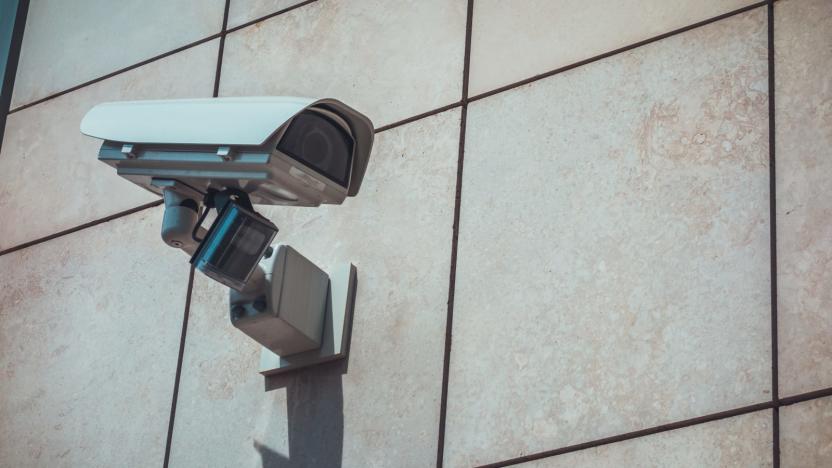
Orlando won't use Amazon's facial recognition software anymore
Orlando has canceled Amazon's facial recognition pilot following a series of technical problems and other issues, according to Orlando Weekly. The city started testing the facial recognition software -- which, according to a study, shows gender and race bias and tends to misidentify dark-skinned women -- back in 2017. After the first trial period expired in mid-2018, local officials showed hesitation in renewing the partnership before deciding to go through with a second pilot. Looks like the second go was just as unsatisfactory, though, because a memo sent to the City Council reportedly said the pilot didn't make "noticeable progress" and that Orlando doesn't have immediate plans to launch more facial recognition trials.
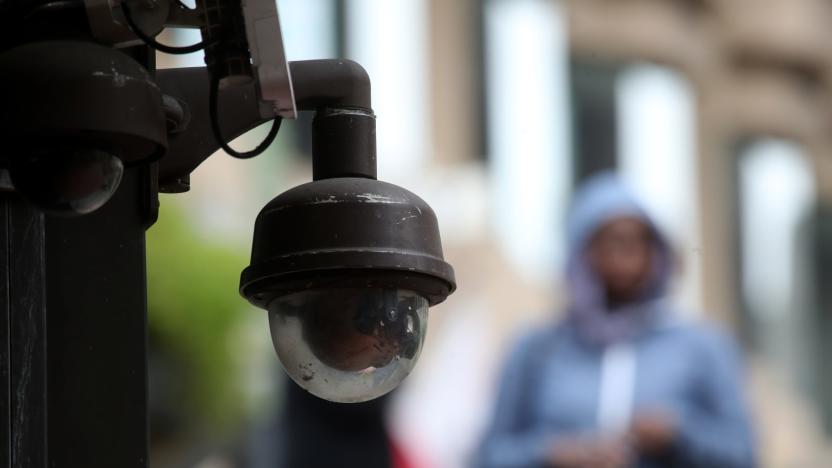
Oakland bans city use of facial recognition software
Oakland, Calif. is now the third US city to ban the use of facial recognition technology. The city passed an ordinance yesterday that prohibits the use of the technology on the grounds that it is often inaccurate, potentially invasive and lacks standards. "Face recognition technology runs the risk of making Oakland residents less safe as the misidentification of individuals could lead to the misuse of force, false incarceration, and minority-based persecution," Council President Rebecca Kaplan wrote in a letter recommending the ban.

FBI and ICE use DMV photos as 'gold mine' for facial recognition data
Cities and companies might be turning away from facial recognition, but federal agents are embracing it -- whether or not the public is fully aware of what's happening. Georgetown Law researchers and the Washington Post have discovered that FBI and ICE investigators have been using state DMVs as a "gold mine" for facial recognition data, scanning hundreds of millions of photos to create an unofficial surveillance infrastructure. Officers routinely use the info to help track down suspects in "low-level" crimes like petty theft, and they use it frequently -- the FBI by itself conducts 4,000 facial recognition searches per month.

China’s Alipay will add beauty filters when you pay with your face
We all know how startling it can be to accidentally open a front-facing camera and find your own unassuming face looking back at you. Now, imagine if you saw that image every time you made a purchase. In China, Alibaba's e-wallet affiliate Alipay will soon add beauty filters when you pay with its facial recognition system.
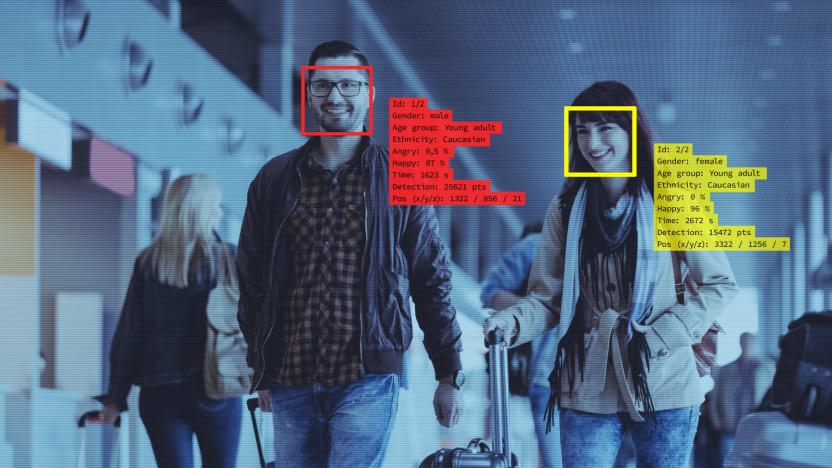
UK police's facial recognition system has an 81 percent error rate
Facial recognition technology is mistakenly targeting four out of five innocent people as wanted suspects, according to findings from the University of Essex. The report -- which was commissioned by Scotland Yard -- found that the technology used by the UK's Metropolitan Police is 81 percent inaccurate and concludes that it is "highly possible" the system would be found unlawful if challenged in court.
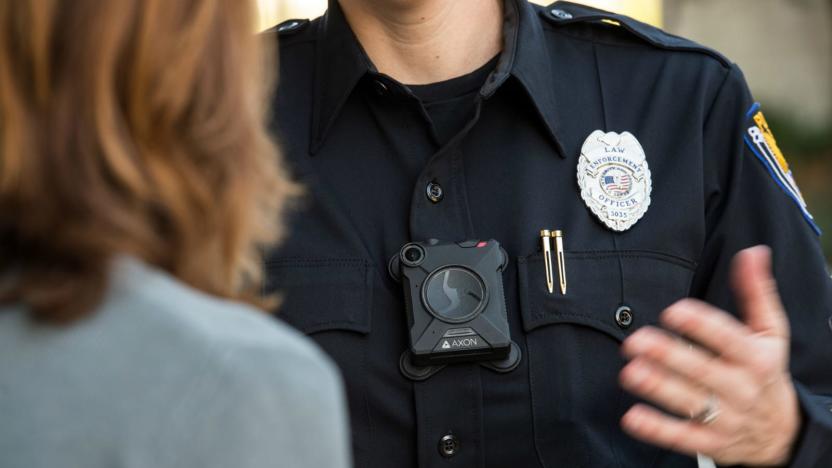
Axon won’t use facial recognition tech in its police body cameras
Axon, a major supplier of police body cameras and software, announced today that it will not include face-matching technology in its body cameras -- at least not yet. The decision follows a report from Axon's independent AI ethics board, which concluded that face recognition technology is not reliable enough to justify its use in body cameras. According to the report, there is "evidence of unequal and unreliable performance across races, ethnicities, genders and other identity groups."

The Pentagon has a laser that identifies people by their heartbeat
Biometric identification has become part of everyday life. We've got facial recognition in airports, cars that can be unlocked just by looking at them, technology that detects a person's unique way of walking, and of course the ubiquitous fingerprint, used for everything from smart phones to event ticketing. Next on the agenda? Your heartbeat.
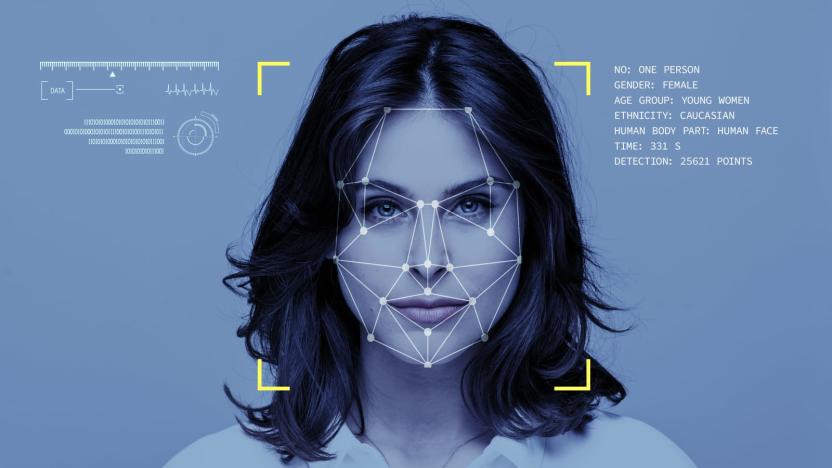
Microsoft discreetly wiped its massive facial recognition database
Microsoft has been vocal about its desire to properly regulate facial recognition technology. The company's president, Brad Smith, appealed directly to Congress last year to take steps to manage the tech, which he says has "broad societal ramifications and potential for abuse." Such are the company's concerns that it even blocked the sales of the tech to California police forces. Now, Microsoft is continuing its crusade by quietly deleting its MS Celeb database, which contains more than 10 million images of some 100,000 people.
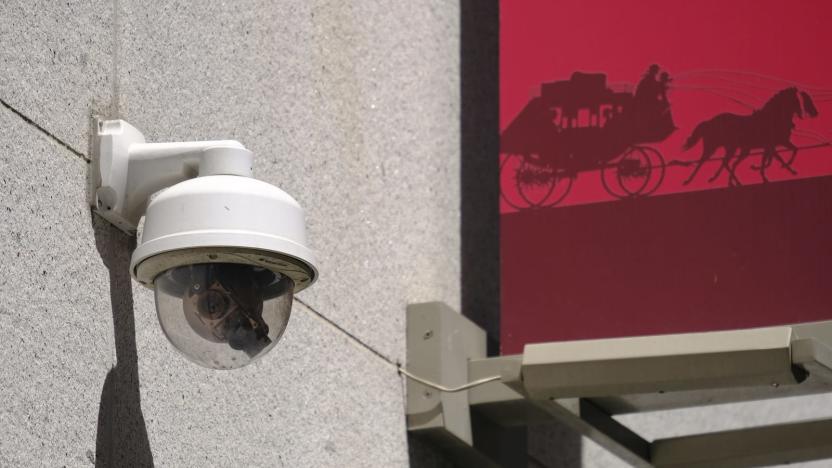
Lawmakers call for regulation of facial recognition tech
A bipartisan group of lawmakers is calling for regulations to restrict the use of facial recognition technology before "it gets out of control," according to the Washington Post. Members of the Congressional House Oversight and Reform Committee held a hearing on the topic today, during which legislators from across the political spectrum expressed concern over the use of software that is used to identify individuals, raising questions as to the technology's accuracy and its impact on privacy and civil rights.

Amazon investors reject call to limit facial recognition system sales
Amazon shareholders have voted against a proposal to limit the company from selling its facial recognition technology to law enforcement and government agencies. The proposal, which highlighted concerns over the Rekognition system related to "civil and human rights and shareholder value," failed to pass at Amazon's annual investor meeting Wednesday, on the same day the House Oversight Committee held a hearing on facial recognition tech.
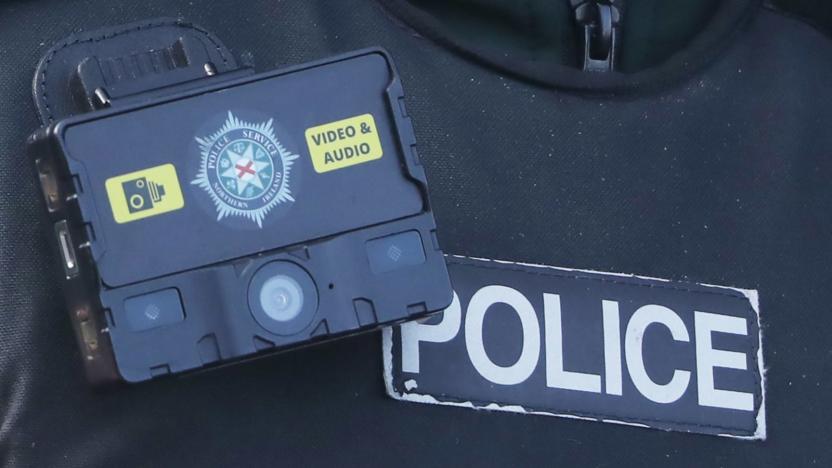
California's Senate may ban facial recognition tech in police body cameras
The state of California's legislature is considering a new bill that would ban the use of facial recognition technology in police body cameras, according to CNBC. The proposal, which has already passed the state Assembly and now awaits a vote from the Senate, would follow in the footsteps of the city of San Francisco, which took action to forbid government agencies from adopting facial recognition software earlier this month.
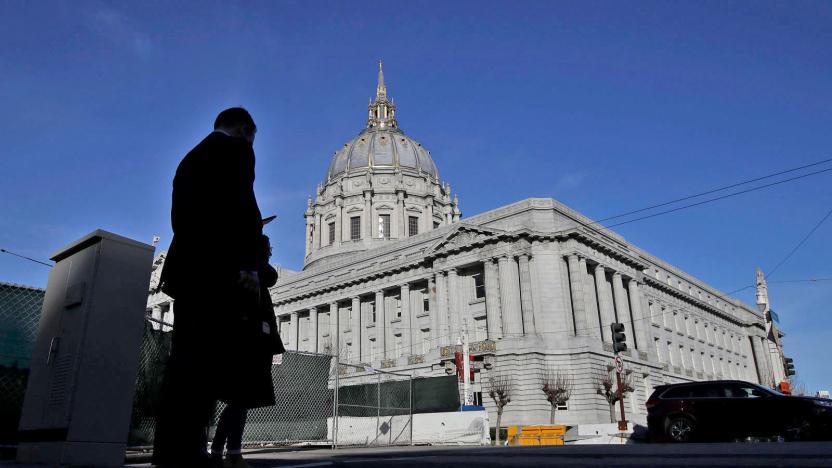
San Francisco bans city use of facial recognition
San Francisco is following through on talk of banning facial recognition tech. The city's Board of Supervisors has voted 8-1 in favor of a bill, the Stop Secret Surveillance Ordinance, that bans city government (including police) from using facial recognition technology. It also demands a public oversight body for surveillance technology purchases such as license plate readers and Stingray cell tower spoofers. The move makes San Francisco the first city in the US to outright ban government adoption of facial recognition tech.

Ever quietly trained facial recognition AI using its photo storage app
Ever, a free photo storage app, has been using the billions of photos and videos uploaded by its users to train a facial recognition tool it plans on selling to private companies and the U.S. government. Users who rely on the app's facial recognition to tag friends or group together photos are unknowingly helping its algorithm learn to identify faces, NBC reported today.

Windows 10 update pushes Microsoft closer to a password-free future
With its Windows 10 May 2019 update, Microsoft is getting one step closer to eliminating passwords. The company's Windows Hello has earned its FIDO2 certification -- an industry standard that deems Windows Hello a secure authenticator. Now, users running Windows 10 version 1903 will be able to login to devices, apps and online services using biometrics or PINs, rather than passwords.

San Francisco could be the first US city to ban facial recognition tech (updated)
The Chinese government has drawn widespread condemnation in recent months over its extensive use of public surveillance and facial recognition technology to monitor the movements of some 12 million Muslim citizens. "It's a 'Muslim tracker' funded by Chinese authorities in the province of Xinjiang to keep track of Uyghur Muslims," Victor Gevers, co-founder of GDI Foundation, a non-profit open-internet advocacy group, wrote on Twitter in February. Facial recognition tracking has received its fair share of criticism here in the US as well -- even as companies like Amazon field test their half-baked AIs with police departments across the country -- and may soon spawn the nation's first outright ban on the technology.
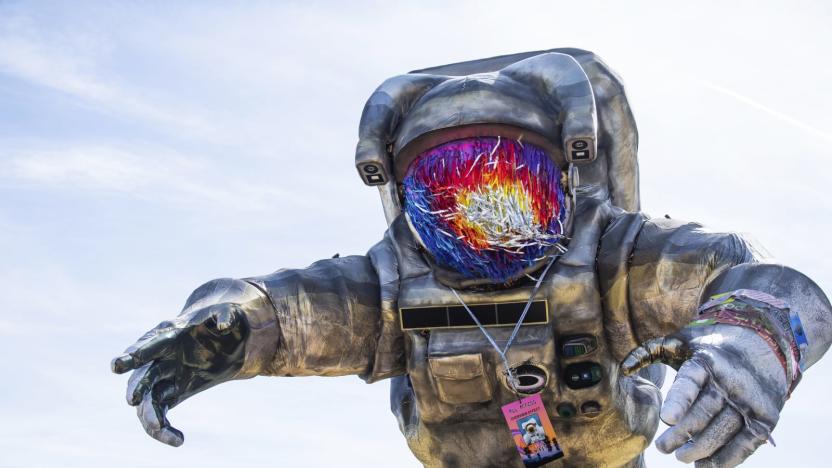
Recommended Reading: Coachella was built for YouTube
Coachella 2019 review: A festival built for YouTube Paul A. Thompson, Pitchfork For years, Coachella's opening weekend has been a huge event for YouTube. A weekend's worth of livestreams don't deliver all of the acts to your living room, but the site typically offers a lot of the big names so you don't have to travel to the desert. Pitchfork explains how the festival is now designed just as much for the viewers at home in its review of the 2019 event. "Especially after Beyoncé's Earth-rattling set last year, some stars and would-be stars lunged at the chance to make statements with their performances over the weekend, with productions designed to appeal as much to live streamers as to the crowd at Indio, California's Empire Polo Club," the site notes. And perhaps no one went all-in this year as much as Childish Gambino.








